During the 2017 holiday season, I got a great deal on the Best of Warner Bros. 100 Film Collection. Diane and I haven’t seen most of these movies, but we are committed to watching one a week and writing a short review.
I never seek out tearjerkers, but after seeing two versions of “A Star is Born” over the last week, I am starting to appreciate the catharsis of films-as-emotional release. I am not opposed to crying – it is not an affront to my masculinity or any such garbage – but I typically prefer more positive or upbeat films. Rather than two separate reviews, this week we are going to review 1954’s “A Star is Born” for our list and 2018’s “A Star is Born” just for the pleasure of it, simultaneously.
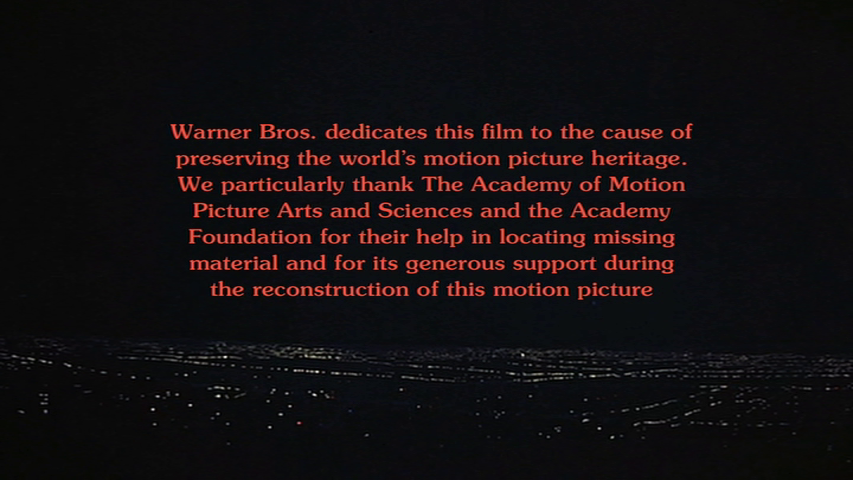
If you are unfamiliar, the original “A Star is Born” was released in 1937, but the film was officially remade in 1954, 1976, and 2018. The announcement of any remake these days tends to be received with the same cries of how Hollywood is “no longer” original. Well, remakes and being unoriginal are as old as Hollywood itself if you look at examples like “A Star is Born”.
All the films follow a similar theme: a woman at the beginning of her career falls in love with a man at the end of his. Try as she might and despite their love, the man repeatedly fails to overcome the weight of his own life. To protect his beloved and her career, the man realizes his presence will only hold her back from her dreams and he chooses to take his own life to, in his view, save hers. There are obviously variations to all these elements, but that’s the generally structure of the narrative in each.
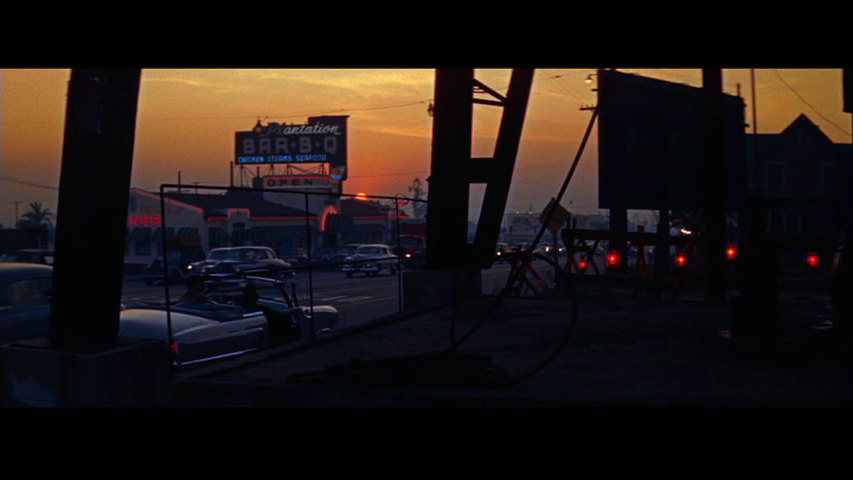
In comparing the 1954 and 2018 remakes, I feel far less jaded about than idea than I once did. Like so many, I usually shrugged anytime I saw a new version of an old favorite being announced. It seems like we are stuck in an endless cycle of repeating ourselves.
That is both true and untrue. If I had considered for a moment my love of the ancient epics from Homer or, more generally, my love of myths and the storytelling of those myths, originality only happens once and everything original happened long, long ago.
This sentiment is echoed in the 2018 version of “A Star is Born”. The film follows an established musician named Jackson Maine (Bradley Cooper) who falls in love with a singer named Ally (Lady Gaga) as he helps launch her music career overnight with an unrehearsed duet of one of her original songs at one of his concerns. In falling in love with Ally, Jackson remarks that music is “twelve notes and the octave repeats … it’s the same story over and over” but it’s the way Ally uses those twelve notes and the things she has to say with her lyrics that he falls in love with.
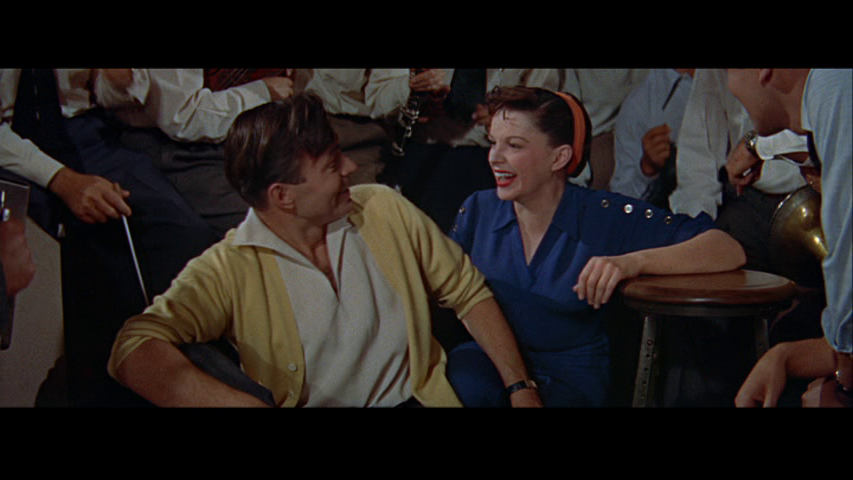
These two versions of the same story follow many of the same beats. While 2018’s version cast its leads as musicians, the 1954 version casts them as actors. Judy Garland returns on our list to play Esther Blodgett, an aspiring singer who is discovered by the actor Norman Maine (James Mason) in the early stages of his career decline. Lady Gaga gave a great performance in her version, but Judy Garland’s singing was phenomenal and well-utilized in the frequent musical numbers she performs as her character’s acting career has a rocket-strapped to it by her sheer talent.
In both films, the initial courtship and romance comes off creepy and stalkeresque. Both Cooper and Mason’s Maines are sympathetic characters from the outset, as both deal with blatant, toxic alcoholism. At the same time, the way they pursue Ally or Esther would have invoked serious concern if I were the target. I am grateful that neither story dwells overlong on these courtships as I think doing so would detract from the overall flow of either story, but an additional scene for each may have helped smooth out what otherwise feels like a hunter and prey scenario which, if I had different expectations for where the story was headed, might’ve led me to believe these were a different, more horrifying movies.
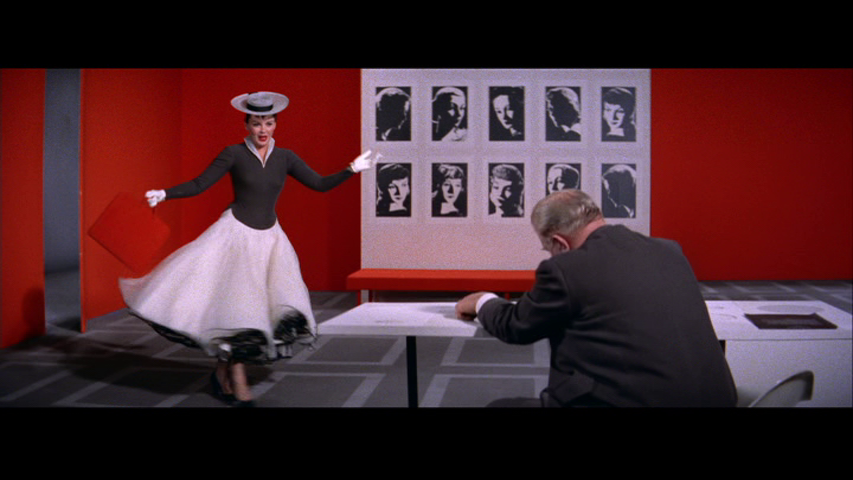
Of course, once the romance blooms, both films hit their stride. In either case, I was drawn in by the chemistry of the couples. Bradley Cooper and Lady Gaga each give fantastic performances. Lady Gaga was especially appealing to me and did nothing to detract or take me out of the film as you might expect with a less experienced actress. I believed in their love and wanted them to survive the weathered, worn down ills afflicting Cooper’s Jackson Maine.
Similarly, though with less chemistry, I was near equally invested in Judy Garland and James Mason and their love. My favorite scene in the 1954 version follows James Mason’s Norman Maine, his contract with the studio terminated because of his declining talent and the liabilities of his alcoholism, as he spends the day in their Malibu home. He is clearly bored as he putts golf balls in the living room and finds ways to occupy his time.
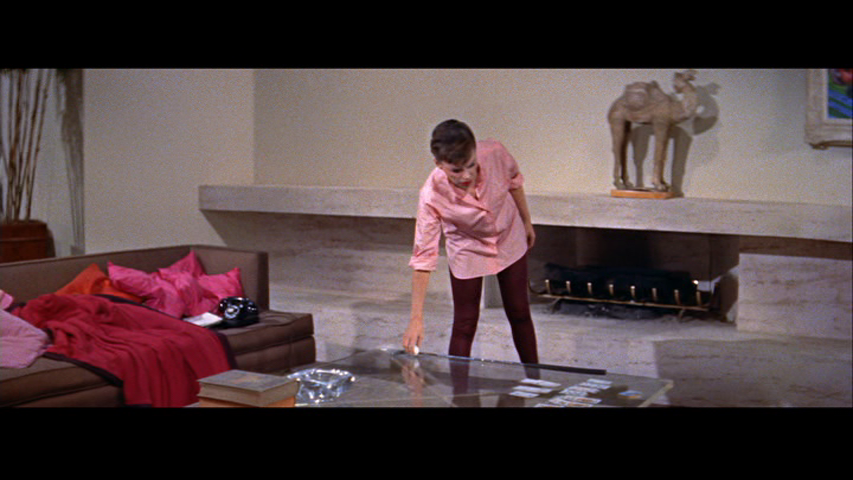
When Esther arrives home, still in costume from practice for her next big production, they embrace, and he tells her that he has been teaching himself to cook. As Norman wanders off to fetch dinner since the servants have been sent home, you see Esther’s shocked and surprised face as she looks around the room and realizes how her husband has obviously spent the day doing nothing. When he returns, she tells him about her production and, to boost his spirits, performs the whole song and dance number in their living room. As he laughs with her and cheers her on, you see how much in love he is with her and how happy he is for her. The scene ends when a mailman interrupts to deliver a package for Esther but uses her stage name for Norman’s surname rather than recognizing Norman Maine, a man who was once famous.
While you might expect either film to be about the jealousy of a veteran husband of his upstart wife, neither film explores that idea. In a more positive, progressive way, both films are about loyal, loving husbands who only want the best for their wives and their careers. As damaged as they each are, jealousy never really enters the picture.
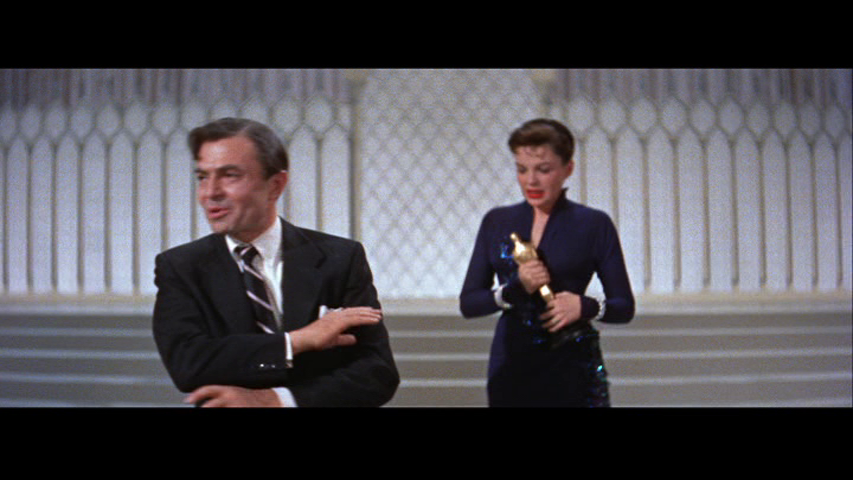
Despite dealing with the lives of very famous people, the downfall for both Maines is unfortunately a very common disease: alcoholism. Even though they both interrupt award shows with their inebriation (in 1954, it is the Academy Awards; in 2018, the Grammys), their wives stick with them through the scandal and embarrassment and are willing to give up their careers to take care of them. But, in both versions, each Maine chooses suicide when they realize they will not get better and that their demons will only drag down the dreams of the women they love.
Though not the kind of movies I typically watch, I found both films to be compelling and worth seeing. Diane ended up favoring the 2018 version while I preferred the 1954 film. We were in overall agreement with our likes and dislikes of each, so the difference is more of preference rather than of quality. I found Norman Maine and his fall to be a more compelling arc than Jackson Maine’s, while she strongly preferred the chemistry of Bradley Cooper and Lady Gaga to James Mason and Judy Garland. In either case, these are two excellent films and a great example of how remaking something can take the exact same notes and make them compelling with a new voice. Like great music covers, both films are worthy of being on any playlist.
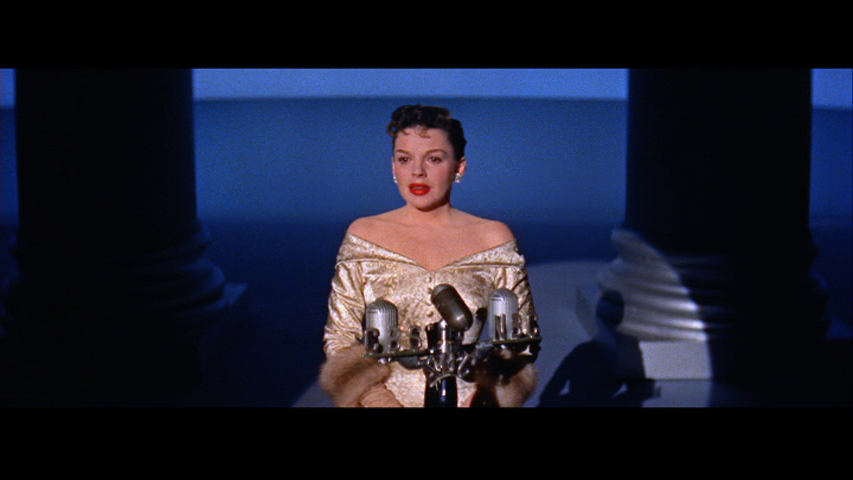
For other reviews, make sure to check out the Warner Brother’s Top 100 Film’s page.
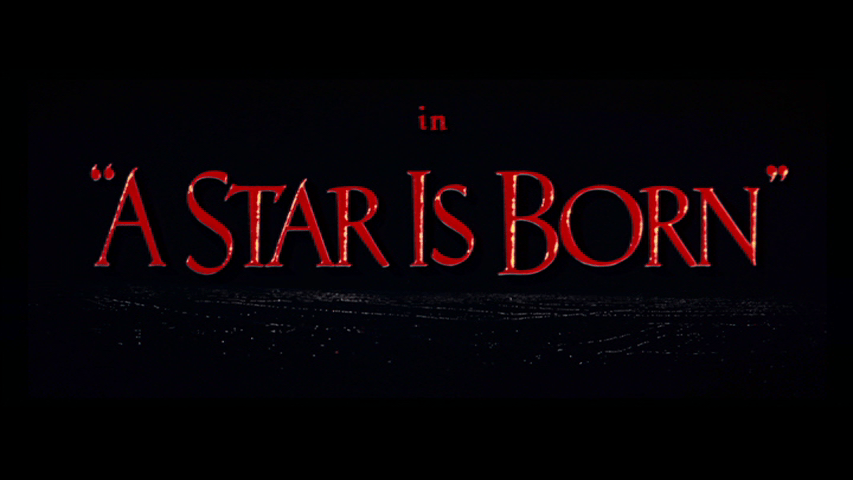
2 responses to “WB Top 100: A Star is Born (1954 & 2018)”
I had heard nothing about the 2018 version until just recently saw a YT link to the vid of the song they sang together. Brought chills – LAdy Gaga is an amazing singer. Truth is I didn’t know anything about the ‘76 version either besides the actors and that addiction was somehow the protagonist. So now guess I know how it ends lol! But was interested in seeing it eventually just because Bradley Cooper is really growing on me as an actor.
LikeLike
Yeah, she is very talented, especially stripped of the access production. Cooper also does a good job directing in addition to a solid acting performance. I am really starting to like him too.
LikeLike